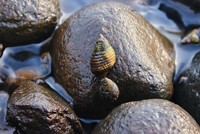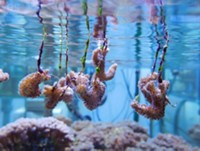Advertisement
Grab your lab coat. Let's get started
Welcome!
Welcome!
Create an account below to get 6 C&EN articles per month, receive newsletters and more - all free.
It seems this is your first time logging in online. Please enter the following information to continue.
As an ACS member you automatically get access to this site. All we need is few more details to create your reading experience.
Not you? Sign in with a different account.
Not you? Sign in with a different account.
ERROR 1
ERROR 1
ERROR 2
ERROR 2
ERROR 2
ERROR 2
ERROR 2
Password and Confirm password must match.
If you have an ACS member number, please enter it here so we can link this account to your membership. (optional)
ERROR 2
ACS values your privacy. By submitting your information, you are gaining access to C&EN and subscribing to our weekly newsletter. We use the information you provide to make your reading experience better, and we will never sell your data to third party members.
Environment
Oil Is Oil, Even In The Arctic
Oil Toxicity: Arctic marine species are no more sensitive to crude oil than temperate species are
by Janet Pelley
September 21, 2011

As oil companies eye the rich petroleum reserves beneath the Arctic Ocean, scientists worry about the impact of spills on the ocean’s delicate ecosystem. Many scientists have guessed that polar marine species, with their slow metabolism and high fat content, are more sensitive to toxic petroleum compounds than temperate species are. However, a new study finds that polar species respond to oil in much the same way as their temperate cousins do (Environ. Sci. Technol., DOI: 10.1021/es202296a).
The researchers combed through data from 14 studies and three government databases that documented oil’s toxic effects on 28 polar and temperate species such as shrimp and fish. Overall, polar and temperate species were just as likely to die when exposed to fixed concentrations of three petroleum compounds.
For assessing risk in the Arctic, says Jan Hendriks, an author of the study and an ecotoxicologist at Radboud University, in the Netherlands, “We might not need to do large-scale testing of Arctic species because we can use data that are already available for temperate species”. However, because the study only looked at deaths from exposure to oil, more tests should determine whether oil disrupts Arctic species’ growth and reproduction to the same extent as it does for temperate species, he says.





Join the conversation
Contact the reporter
Submit a Letter to the Editor for publication
Engage with us on Twitter